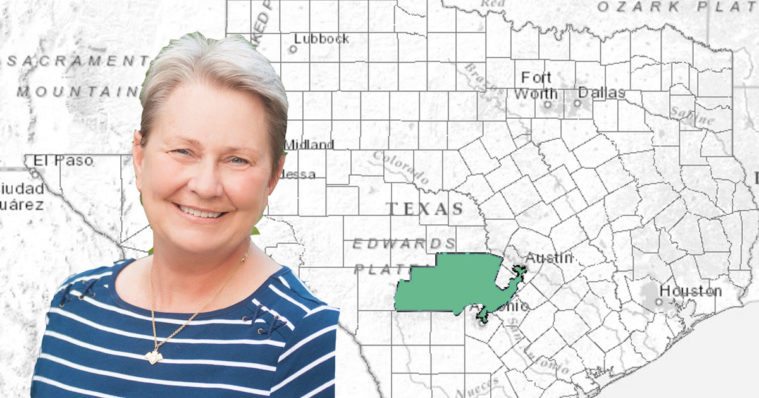With this week's lefty blog post and news round-up, the Texas Progressive Alliance was delighted to let the youth lead the way this past weekend.
As if the March For Our Lives events weren’t epic enough, Texas Leftist was glad to see some Houston-area high school students begin another impressive movement. By bringing prominent Democratic and Republican leaders together in ways that political forces have fallen short, the Inaugural Day of Unity Texas is off to a great start.
Stace at Dos Centavos gives his impressions of law enforcement's and the media's portrayal of the Austin bomber. With a corresponding POV, Progressive.org employs an unfortunate pun to destroy the myth of Austin as the liberal bastion of Texas.
Texas attorney general Ken Paxton revealed himself to be entirely clueless about the details of the Austin bomber in multiple media appearances, writes RG Ratcliffe at Texas Monthly.
In his irregular curation of criminal justice stories needing more attention, Scott Henson at Grits for Breakfast blogged about the Fifth Circuit getting benchslapped by the SCOTUS in Ayestas v. Davis.
Both The Intercept and Down With Tyranny wrote about the DCCC's greasy thumb on the scales in Texas Congressional primaries.
Stephen Young at the Dallas Observer names ten Texas celebrities who ought to get into politics, a list that might have been a bit more useful before we voted three weeks ago.
Off the Kuff analyzed Harris County precinct data for the Democratic Senate primary. (zzz)
SocraticGadfly offers his thoughts on the lawsuit by Seth Rich's parents.
Neil at All People Had Value made the point that we are facing an authoritarian/Constitutional crisis.
Ted at jobsanger enjoys watching Trump squirm over the Stormy Daniels business, but thinks it's time for the country to move on.
Lewisville municipal candidates debated at the city's renovated Music City Mall, and the Texan Journal has details.
Ahead of the 2020 census, the TexTrib counts the ways Texans are getting more difficult to find and include, which has ramifications from federal funding to redistricting.
Space City Weather explains why a hurricane forecast for 2018 will be a challenge.
Bonddad advises caution in interpreting opinion polls based on voluntary associations.
In transportation blame-game postings, Jeff Balke at the Houston Press faults negligent drivers for the spate of car crashes with light rail trains in H-Town, and Mean Green Cougar Red takes a long look at the Uber self-driving car that caused the death of a bicyclist.
In another post about closing the barn door after the cows have left the building, Dwight Silverman at Tech Burger shows how to manage your Facebook privacy settings. Just get off the crack, y'all.
And Harry Hamid writes a story about a friend who became an energy vampire.
As if the March For Our Lives events weren’t epic enough, Texas Leftist was glad to see some Houston-area high school students begin another impressive movement. By bringing prominent Democratic and Republican leaders together in ways that political forces have fallen short, the Inaugural Day of Unity Texas is off to a great start.
Stace at Dos Centavos gives his impressions of law enforcement's and the media's portrayal of the Austin bomber. With a corresponding POV, Progressive.org employs an unfortunate pun to destroy the myth of Austin as the liberal bastion of Texas.
Across social media, especially, a narrative formed that the Austin bombings were another example that media does not cover tragedies in communities of color with the same determination as disasters affecting white communities.
“When does a story pick up steam and why -- is it simply because of the volume or because the problem left East Austin,” says Kevin Foster, a professor in the African and African Diaspora Studies department at the University of Texas at Austin, and who is involved in community programs on the east side. “I don’t know the answer, but we need to ask the question. This community is used to institutional neglect and being marginalised.”
Texas attorney general Ken Paxton revealed himself to be entirely clueless about the details of the Austin bomber in multiple media appearances, writes RG Ratcliffe at Texas Monthly.
In his irregular curation of criminal justice stories needing more attention, Scott Henson at Grits for Breakfast blogged about the Fifth Circuit getting benchslapped by the SCOTUS in Ayestas v. Davis.
Both The Intercept and Down With Tyranny wrote about the DCCC's greasy thumb on the scales in Texas Congressional primaries.
Stephen Young at the Dallas Observer names ten Texas celebrities who ought to get into politics, a list that might have been a bit more useful before we voted three weeks ago.
Off the Kuff analyzed Harris County precinct data for the Democratic Senate primary. (zzz)
SocraticGadfly offers his thoughts on the lawsuit by Seth Rich's parents.
Neil at All People Had Value made the point that we are facing an authoritarian/Constitutional crisis.
Ted at jobsanger enjoys watching Trump squirm over the Stormy Daniels business, but thinks it's time for the country to move on.
Lewisville municipal candidates debated at the city's renovated Music City Mall, and the Texan Journal has details.
Ahead of the 2020 census, the TexTrib counts the ways Texans are getting more difficult to find and include, which has ramifications from federal funding to redistricting.
Space City Weather explains why a hurricane forecast for 2018 will be a challenge.
Bonddad advises caution in interpreting opinion polls based on voluntary associations.
In transportation blame-game postings, Jeff Balke at the Houston Press faults negligent drivers for the spate of car crashes with light rail trains in H-Town, and Mean Green Cougar Red takes a long look at the Uber self-driving car that caused the death of a bicyclist.
In another post about closing the barn door after the cows have left the building, Dwight Silverman at Tech Burger shows how to manage your Facebook privacy settings. Just get off the crack, y'all.
And Harry Hamid writes a story about a friend who became an energy vampire.

























